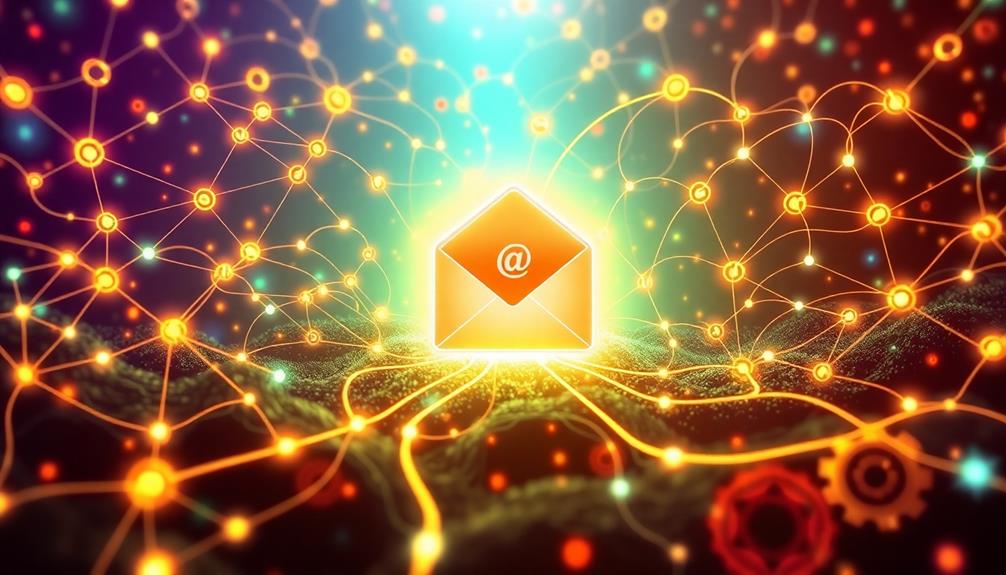Millennials are redefining “working smart” by embracing generative AI tools that automate routine tasks, boost productivity, and enhance efficiency. They’re comfortable integrating AI into their daily work, allowing them to focus on strategic and creative efforts. This shift is transforming workplace standards and encouraging faster innovation across industries. If you want to explore how this new approach is shaping the future of work, keep exploring how Millennials are leading this change.
Key Takeaways
- Millennials leverage AI to automate repetitive tasks, enhancing efficiency and freeing time for strategic activities.
- Their familiarity with digital tools enables seamless integration of generative AI into daily workflows.
- Millennials actively upskill and adapt, using AI to stay ahead in evolving job roles and industry demands.
- They lead AI adoption in workplaces, reshaping traditional norms and promoting smarter, more flexible work practices.
- Their trust in AI’s capabilities fosters innovative approaches to work, redefining productivity and work-life balance.

Have you noticed how Millennials are transforming the way we work? They’re leading the charge in adopting generative AI, changing workplace norms and expectations. Over half of Millennials use AI at work, outpacing older generations, with 43% engaging with it weekly. This frequent usage shows they’re not just experimenting; they’re integrating AI into daily tasks. Nearly a quarter of Millennials use AI multiple times a week, making it a habitual part of their workflow. They trust and understand AI agents more than their older colleagues, positioning them as natural technology leaders in their organizations. Generative AI adoption among Millennials has surged significantly, reflecting their comfort and familiarity with digital innovation. Millennials leverage generative AI mainly to automate repetitive tasks, freeing up time for strategic thinking. They’re ahead of other generations in using AI to boost productivity, gain efficiency, and improve work-life balance. It’s no surprise that 90% of AI users report better efficiency in their routines. As a result, they’re confident that AI will profoundly impact their work within the next year, fueling rapid adoption across industries. By mid-2024, 71% of enterprises are expected to incorporate AI, with Millennials often leading these initiatives.
This shift is transforming job structures. AI is projected to automate up to 30% of work hours by 2030, and Millennials are actively steering this change. While some jobs will be replaced, the landscape will also create millions of new opportunities. Millennials’ willingness to upskill and adapt is vital, especially since only 3% of software engineering skills are resistant to automation. Many companies already use AI to address labor shortages, with Millennials spearheading these efforts. Their openness to using AI for both tactical and strategic tasks is reshaping roles across industries. Additionally, their familiarity with digital tools enables them to better navigate the evolving workplace environment.
Across industries, Millennials drive the rapid growth of generative AI, which is expected to reach a valuation of over US$350 billion by 2030. They’re especially influential in sectors like finance, healthcare, and consumer services. Nearly 92% of Fortune 500 firms have adopted AI, led by younger, tech-savvy employees. Globally, usage varies, with 45% adoption in the U.S., but the trend remains strong. Millennials’ positive attitudes and trust in AI set them apart from older generations, who remain more skeptical. They’re not just using AI; they’re redefining what it means to work smart in the digital age.
Frequently Asked Questions
How Does Generative AI Impact Millennial Career Development?
Generative AI shapes your career development by boosting your productivity and enabling you to take on strategic roles. You’re often learning new AI skills to stay ahead, which helps with career advancement. It also pushes you to balance technical expertise with soft skills like empathy and leadership. However, AI’s automation may threaten entry-level jobs, so staying adaptable and continuously upskilling is key to long-term growth and job security.
What Ethical Concerns Do Millennials Consider When Adopting AI Tools?
You’re likely concerned about bias and fairness when adopting AI tools, worried they might produce unfair outcomes. Data privacy is also a key issue, as you want to protect sensitive information. Accuracy and reliability matter too, since you need dependable results. Additionally, you consider regulatory compliance and transparency important, ensuring AI decisions are understandable and lawful. Balancing innovation with these ethical considerations helps you use AI responsibly and build trust in your work.
How Do Millennials Balance AI Use With Maintaining Authentic Work Relationships?
You balance AI use with authentic work relationships by being transparent about your AI tools and ensuring your contributions remain genuine. You prioritize interpersonal skills, fostering open communication and trust with colleagues. You also support your team in responsible AI adoption, promoting ethical practices and checking AI outputs for accuracy. By blending technology with authentic interactions, you strengthen workplace bonds while leveraging AI to boost productivity and maintain integrity.
Are There Specific AI Tools Preferred by Millennials Across Industries?
Think of AI tools as your digital compass guiding you through complex terrains. You prefer ChatGPT for versatile insights, Midjourney for creative visions, and Notion AI for organizing ideas. These tools serve as your trusty brushes, maps, and engines—shaping your work across industries. You harness their power to craft, analyze, and connect—transforming your efforts into a seamless journey where innovation and efficiency become your guiding stars.
What Skills Are Millennials Focusing on to Complement AI Integration?
You focus on developing AI literacy, data analysis, and automation skills to work effectively with AI tools. You also prioritize ethical AI use and continuous learning to stay updated on evolving technologies. Strategic thinking, leadership, and creative problem-solving help you leverage AI for innovation. Additionally, enhancing emotional intelligence, communication, empathy, and collaboration skills guarantees you can work seamlessly alongside AI systems, maximizing productivity and fostering human-AI teamwork.
Conclusion
As you embrace generative AI, you paint a new landscape of efficiency—where ideas flow like a river and tasks become stepping stones. With each click, you carve out more space for creativity and growth, transforming your workday into a vibrant canvas. By working smart, you’re not just keeping pace—you’re shaping the future, turning everyday moments into powerful strokes of innovation. The horizon is yours to redefine, one intelligent choice at a time.










